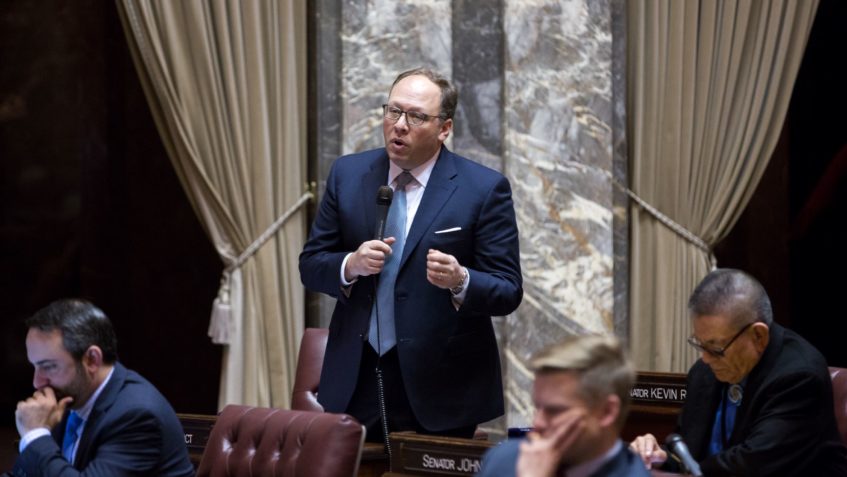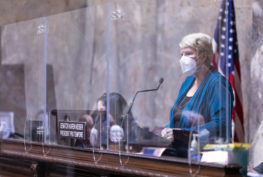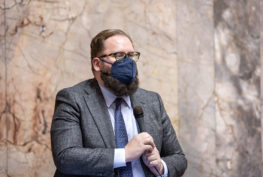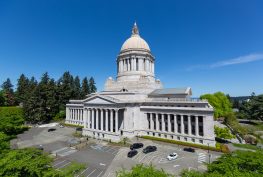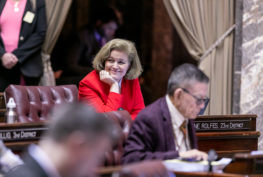OLYMPIA — The Senate’s bipartisan proposed supplemental capital construction budget (SB 5651) would invest nearly $1 billion in priority infrastructure across the state, including a landmark investment in a new school seismic safety fund.
“This budget invests in the most pressing issues facing our state,” said Sen. David Frockt (D-Seattle), vice chair of the Senate Ways & Means Committee and the Senate’s lead capital budget writer. “We are fulfilling our promises to expand broadband internet access, assist in addressing the state’s housing and homelessness crisis, preserve our natural resources, and make schools safer from earthquakes and tsunamis. I’m pleased to expect bipartisan support for this budget given the collaborative work we’ve done to put it together.”
Hundreds of schools across Washington face a high risk of serious damage from an earthquake or tsunami, according to a 2021 report by the Department of Natural Resources. The capital budget would contribute $115 million to a new grant program to provide state funding toward the cost of replacing or seismically retrofitting school buildings in high seismic areas or tsunami zones.
That seismic safety program was established by Frockt’s bill SB 5933, which the Senate unanimously passed last week. The capital budget also includes another $8 million to complete the state’s 2019-21 retrofit program.
“Providing safe places for children to learn is one of the state’s most serious responsibilities,” Frockt said. “The risk of an earthquake or tsunami may seem small at any particular place and time, but multiplied by all the communities in potentially geologically active areas across our state, this problem is urgent.”
A historic $472 million would fund grants and loans to invest in affordable housing, including $376 million for rapid housing and crisis stabilization services.
Established in 2021, the Rapid Housing Acquisition program helps local governments around the state bring unsheltered people into housing as quickly as possible. It has already provided grants for rapid housing projects in the Seattle and Vancouver areas that are anticipated to generate hundreds of units quickly in the coming months.
A further $327 million would go to improve the state’s environmental health, including water quality, recreation, and conservation. Field Springs and Kopachuck State Parks would receive $2.6 million for improvements. Local and community projects supported by members of both parties across the state are also included in the proposal.
The budget demonstrates Senate Democrats’ commitment to equity by investing significantly in underserved communities through broadband expansion, affordable housing, and community projects.
Priority projects in communities that have historically been underserved, including communities of color, would receive significant funding. In Seattle, that includes $4.5 million for the Tubman Health Clinic, a Black community-owned and -led health institution for all people. The flagship Tubman health center is slated to open in 2025. Another $4 million would go to the Rainier Valley Early Learning Center.
Expanding broadband internet access to rural and underserved areas throughout the state was one of the key recommendations identified in last year’s report of the Special Committee on Economic Recovery, which Frockt chaired. This budget would provide $120 million toward that goal through funding from last year’s federal infrastructure law.
Community behavioral health is also a priority. The budget would contribute $6 million for Cascade Hall Community Psychiatric Clinic in King County to make sure the important inpatient beds it offers are not taken offline.
A list of the Senate proposed budget’s capital investments in Seattle is available here.

